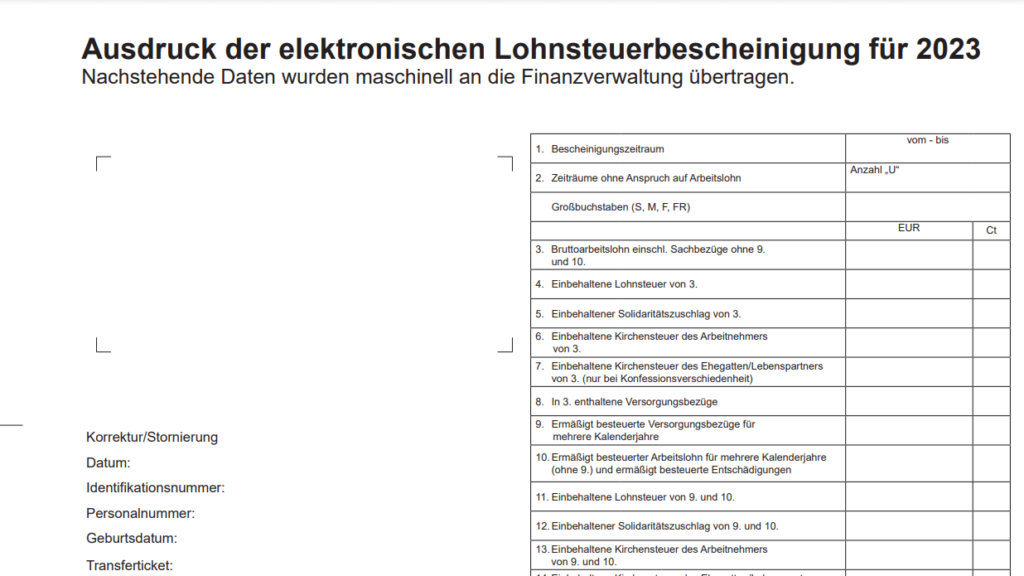Are you a student in Germany looking to make the most of your education-related expenses during tax season? Understanding which study-related costs are tax-deductible can help you maximize your financial benefits. In this comprehensive guide, we’ll delve into the intricacies of deductible expenses for students in Germany, exploring key categories and nuances that may impact bachelor’s and master’s students differently.
1. Tuition Fees: Affordable, but Deductible?
Germany is renowned for its low tuition fees at public universities. However, private institutions and specialized programs may come with higher costs that could be tax-deductible. Stay informed about how tuition fee are tax deductible in Germany from our blog post on tax deductible tuition fees.
2. Educational Materials
2.1 Why are Educational Materials Important?
Educational materials encompass a wide range of items essential for academic success. This category includes textbooks, stationery, software, and any materials specifically required for your courses.
- Deductibility Criteria: To qualify for tax deductions, these materials must meet certain criteria. They should be directly related to your studies and deemed necessary for your courses. For instance, textbooks required for a specific class or software essential for your research would likely be deductible.
- Documentation: Keep detailed records of your purchases, including receipts and invoices. Clearly indicate how each item is related to your studies. This documentation is crucial when substantiating your claims during tax filing.
3. Transportation
3.1 Types of Transportation Costs
Transportation costs include expenses associated with traveling to and from your educational institution. This can involve public transportation fares, fuel costs if you use your own vehicle, and even parking fees.
- Qualifying Criteria: For transportation costs to be deductible, they should be directly connected to your education. This means commuting to attend lectures, seminars, exams, or other educational events. If you live off-campus and need to travel to the university, these costs may be considered.
- Public Transport vs. Private Vehicle: If you use public transportation, keep your tickets and receipts. If you use your own vehicle, you may be eligible to claim mileage expenses. However, the rules for private vehicles can be complex, and it’s crucial to understand the specific criteria for deductibility.
- Record Keeping: Maintain a log of your travels, noting the purpose of each trip. This log can serve as evidence during tax filing. Additionally, keep all relevant receipts and documents associated with your transportation expenses.
- Consider Special Circumstances: If your studies involve field trips, internships, or other off-campus activities, transportation costs related to these events might also be deductible. Ensure that you understand the full scope of eligible transportation expenses.
4. Computer and Software
4.1 Importance of Computers and Software in Education
In the modern educational landscape, computers and software are integral tools for students. They are crucial for research, assignments, project work, and sometimes even for specific software requirements related to certain courses.
- Deductibility Criteria: To be eligible for tax deductions, the computer and software expenses need to be directly related to your studies. This means that the equipment and software should be necessary for your coursework or research. Generic personal use items may not qualify unless they are explicitly required by your educational institution.
- Documentation: Maintain clear documentation of your computer and software purchases, including receipts and invoices. Highlight how each item is essential for your academic pursuits. This documentation is crucial when substantiating your claims during tax filing.
- Considerations for Software: Some software might be provided by educational institutions or may be freely available for students. In such cases, expenses related to proprietary or specialized software required for your studies may be more likely to qualify for deductions.
4.2 How are electronic items such as laptops for study purpose tax deductible?
When it comes to electronic equipments that are purchased for study purposes, a unique consideration is the amortization over 36 months. This means that the total cost of the computer is spread out over a period of 36 months. The number of months in the current tax year is then calculated, and only the costs for these months are tax-deductible for that particular tax year. The remaining costs will be considered in the following tax years.
4.2.1 Amortizing electronic equipment Costs over 36 Months
Let’s break down an example to illustrate the amortization process more concisely
Scenario: Consider a study-purpose laptop purchased in May 2022 for €1800. To calculate the monthly cost, we divide the total by 36, resulting in €50 per month.
Tax Deductibility for Each Year:
- 2022: The laptop was in use for 8 months, making the deductible amount for the year 8 x €50 = €400.
- 2023: For the next tax year, the deductible amount remains constant at 12 x €50 = €600.
- 2024: Similarly, in 2024, another €600 (12 x €50) can be claimed as a tax deduction.
- 2025: In the final tax year of the amortization period, the deductible amount is 4 x €50 = €200.
Total Deductible Amounts:
- 2022: €400
- 2023: €600
- 2024: €600
- 2025: €200
By spreading the deduction over the 36-month amortization period, you can accurately allocate the tax benefits each year based on the laptop’s usage. This method ensures a fair representation of the deductible amount for the specific tax year, providing a structured approach to maximize your tax advantages while complying with regulations.
Note: This spread of the costs over the 36 months will be done by the tax office automatically when you enter the purchase date and the total purchase amount of the electronic equipment in the purchase tax year.
5. Double Household Costs
5.1 Why Double Household Costs for Students?
Students who move to a different city for their studies often incur double household costs. This includes rent, utilities, and other expenses associated with maintaining a second household near the educational institution.
- Deductibility Criteria: To be eligible for tax deductions, these double household costs must be directly linked to your education. This typically applies when you need to live near your educational institution, and maintaining a second household becomes a necessity for your studies.
- Documentation: Keep meticulous records of your double household costs, including rent agreements, utility bills, and any other relevant documents. These records will be vital when proving the necessity of a second household for your studies.
- Consider Special Circumstances: If your studies involve internships, practical training, or other off-campus activities that require temporary relocation, the associated double household costs during these periods might also be considered for deductions.
6. Differences Between Bachelor’s and Master’s Students
While the fundamental principles of deductible study-related expenses apply to both bachelor’s and master’s students, nuances may arise. Master’s students, often engaged in more specialized programs, may encounter additional deductible expenses related to their field of study. Also the tuition fee are tax deductible only for Master’s studies.
Stay Informed: Tax laws may change, so it’s essential to stay informed about the latest regulations. Certain educational materials may be fully deductible, while others might have limitations. Regularly check with tax authorities or consult a tax professional to ensure compliance.
7. Conclusion
Navigating the German tax landscape as a student requires a keen understanding of deductible study-related expenses. By staying informed about the latest regulations and seeking professional advice, you can make the most of potential tax benefits. Keep meticulous records, explore all possible deductions, and ensure that you are maximizing your financial advantages during your educational journey in Germany.


